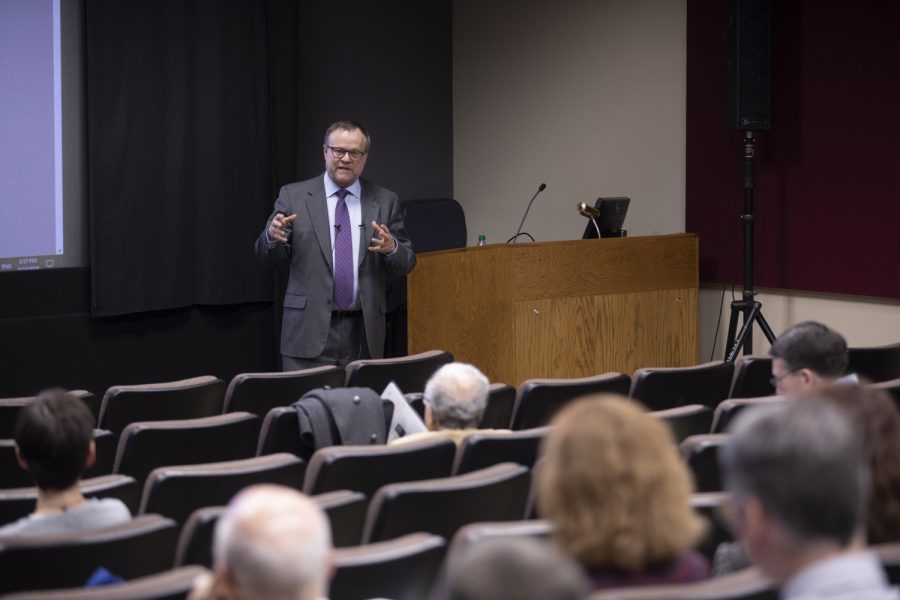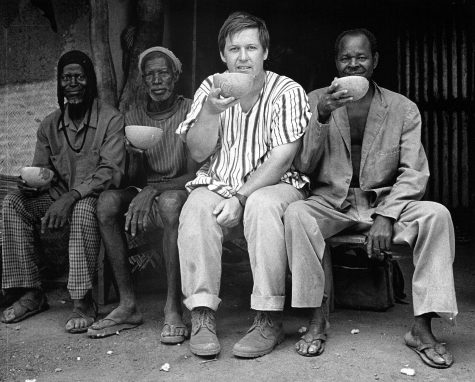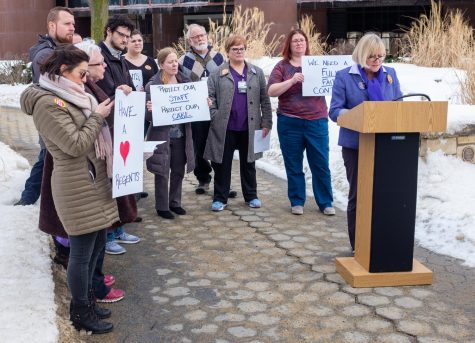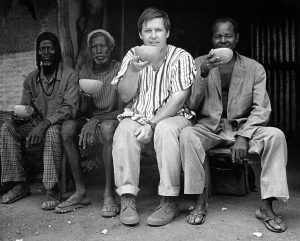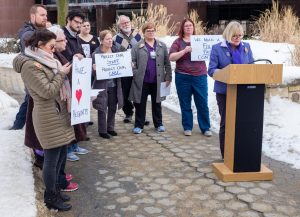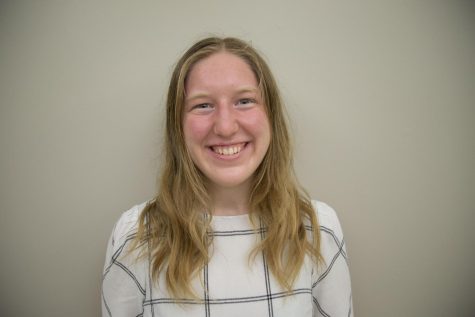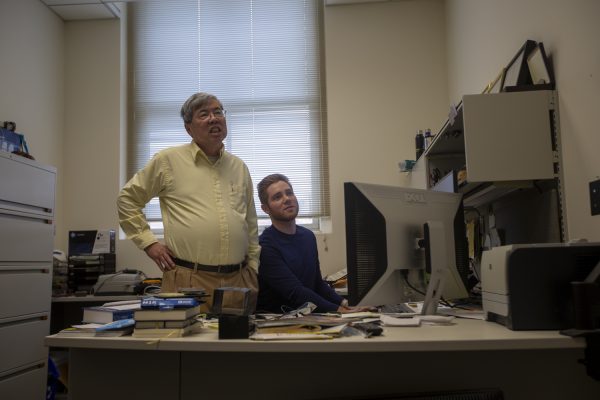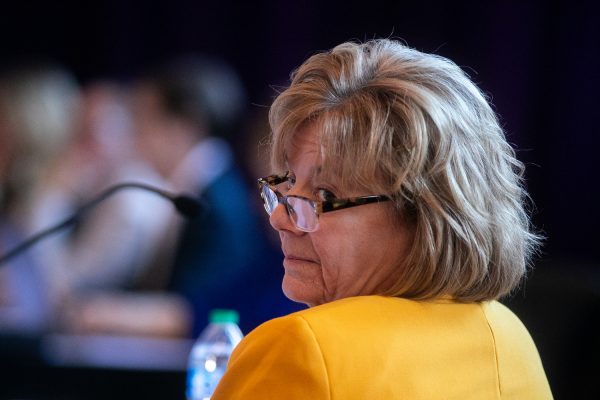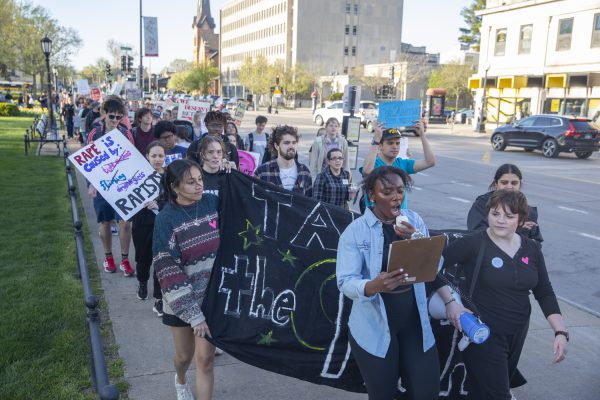Faculty attend first Vice President for Research forum
Vice President for Research candidate Martin Scholtz presented his qualifications to faculty and staff at a public forum Thursday evening.
J. Martin Scholtz of the Texas A&M University College of Medicine speaks during the VP for Research candidate forum on Thursday, Feb. 14, 2019. Scholtz is the first candidate in the search.
February 15, 2019
The first University of Iowa vice president for Research candidate, J. Martin Scholtz, visited the campus on Thursday to discuss his vision of making the UI one of the more pre-eminent universities of the world.
Scholtz, the executive associate vice president for Research at Texas A&M University, said the primary reason he values a job at the UI is because he believes it is leaps ahead of its peers in research.
“One of the things I think is especially attractive of this position right now is that [the UI] is thinking about how to work together,” Scholtz said. “In how to be multidisciplinary, it’s very well ahead of a lot of universities.”
Scholtz kicked off the forum by reminiscing about his discovery of research in his specialty of chemistry, which he attributed to a professor from his own college years who encouraged him to take action upon his interests instead of just learning about them in the classroom.
“I got hooked on the research bug, and I haven’t left,” Scholtz said. “I was a product of an undergraduate research experience, and I took that to heart. The university’s intention should be to train the students with them participating in a very active way.”
Born and raised in Nebraska, Scholtz is a native Midwesterner and said he believes both he and the university are in the prime position for his ascension to vice president for Research.
“There’s a good convergence of change on a number of different things in my personal life,” Scholtz said. “I think it’s a good moment in time for me and the university to really make some big strides.”
Scholtz said the UI needs to have the infrastructure and culture for international leadership in research, bridging the gap across different disciplines, building up its core facilities, and making sure researchers receive credit where it is due.
“We need to be the champion for all scholarship and research activity that we do,” Scholtz said. “You need somebody who wakes up every morning and this is their job, to figure out how to move the infrastructure forward.”
RELATED: Two UI vice president for Research finalists to visit campus
To accomplish this, he said, the research office needs to not lose track of its mission. Scholtz emphasized the responsibility of the vice president for Research to facilitate and not regulate, remembering it is first and foremost a service organization to faculty and principal investigators.
UI internal-medicine Professor François Abboud asked Scholtz about the relationship among entrepreneurship of faculty, staff, students, and the Office of the Vice President for Research and how he would foster opportunity.
“There are challenges this time in terms of priorities of the university, particularly in the area of entrepreneurships,” Abboud said. “The forces that are driving this are partly economic in your leadership position.”
In response, Scholtz said many universities struggle to reconcile entrepreneurship with research, and he admires that at the UI, while each group needs to function individually, there is still a substantial amount of interaction between the two.
He noted that faculty can have an effect by training students to be future bosses and workers and thus have a greater effect on the world.
“I’d be really interested to hear your thoughts on the role of diversity, equity, and inclusion in the [VP for Research Office],” said Meenakshi Gigi Durham, an associate dean of the College of Liberal Arts & Sciences at a different point during the forum.
Scholtz answered on the premise that the UI’s strength lies in its diversity, not just in terms of gender and ethnicity but in a diversity of thoughts.
“We need to provide different perspectives and voices on a problem,” Scholtz said. “Grand challenges are going to have to be solved by multidisciplinary teams from a diverse background.”



